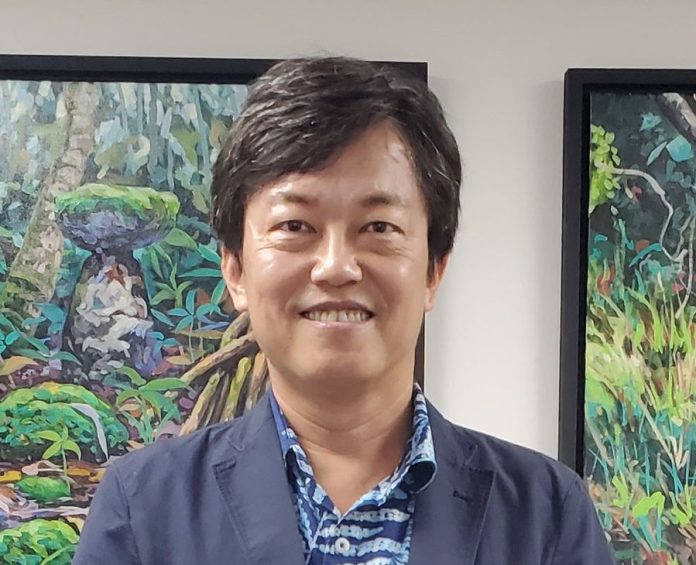Taiwan is open to possible discussions that may lead to regaining diplomatic ties with the Solomon Islands and Kiribati, whose decisions to switch to China in 2019 unsettled Washington and its Pacific allies.
“We are very willing to establish special relations with any island country, not just the Solomons and Kiribati. We want to reach out,” said Paul Chien, director general of the Taiwan Economic and Cultural Office on Guam.
The Solomon Islands and Kiribati severed ties with Taiwan, lured by Beijing’s pledge of billions of dollars in aid.
The two island nations’ diplomatic changeover has touched off uneasiness in the region.
In the Solomon Islands, the swerve to China caused a deep division that culminated in the infamous riots in Honiara in November last year.
Earlier this year, the Solomon Islands’ controversial security agreement with China triggered regional anxiety and prompted Washington to ramp up its engagement with the Pacific island region.
In Kiribati, regional pundits have speculated that China’s shadow was likely behind the island nation’s decision to finalise its full exit from the Pacific Islands Forum.
“The Solomon Islands and Kiribati made their choice. Whether it is good or bad will be judged by the future,” Chien said.
He stressed that Palau was a testament to the perks of being aligned with Taiwan, which he said subscribes to democratic principles.
Taiwan and Palau established diplomatic relations in 1999. “After 23 years, what are the achievements of Palau now? Pretty good,” Chien said. “I visited Palau in 1999. I see the difference now. That means, friendship with Taiwan is a good thing. Taiwan brings a positive impact to Palau. We can share that experience with other island countries too.”
Beijing has resented Palau’s diplomatic relations with Taiwan. In 2018, the communist regime punished Palau by imposing a ban on Chinese tourists to the tiny Pacific nation; leaving hotels empty.
“Palau has resisted what it calls “bullying” by China and consistently maintained its ties with Taiwan”
Taiwan’s highly developed economy is the 18th largest in the Asia-Pacific, according to the International Monetary Fund.
Besides Palau, the Marshall Islands, Nauru and Tuvalu have diplomatic relations with Taiwan.
Chien noted that Taiwan has a stake in the Pacific region, being an island country that shares the same issues faced by other island countries.
“We are all in the Pacific Ocean. We share the same interests. We face the same challenge: climate change, fishing and sailing issues. We have a lot of boats here, Chien said.
“We also have the same security issues. That is the most important thing—the security issue. We face the same challenges and threats from an authoritarian country that wants to change the status quo of this region.”
Chien said Taiwan is willing to participate in regional discussions. “We share the same interests and we are willing to share our experiences, how to fight climate change and build infrastructure.”
In Guam, Chien noted that the Taiwanese investor, Honhui Group, is pouring US$300 million into a hotel project in Tumon.
“That’s just one company and US$300 million is based on the currency exchange rate right now,” Chien said. “It will take five to six years to build the hotel. It is very likely it could cost more. It will create thousands of job opportunities.”
In perspective, Chien said the Taiwanese developer’s hotel investment may be the biggest in the region.
“President Biden announced that the U.S. is investing US$810 million in this region– that’s for 18 island countries,” Chien said. “But this company is going to invest US$300 in Guam alone.”
Taiwan is also envisioning Guam to be the research hub of the Micronesian region by establishing an Asia-Pacific Centre at the University of Guam, Chien said.
“We are helping Guam attract donations from our community. We hope to bring money to establish scholarships here,” he added.
SOURCE: PACIFIC ISLAND TIMES/PACNEWS













